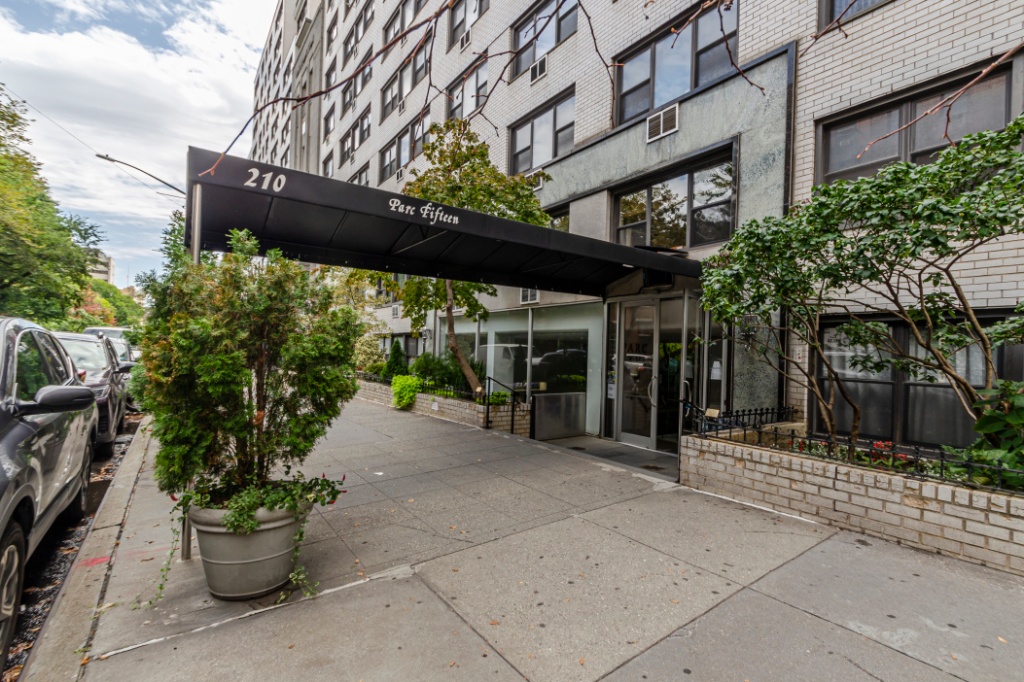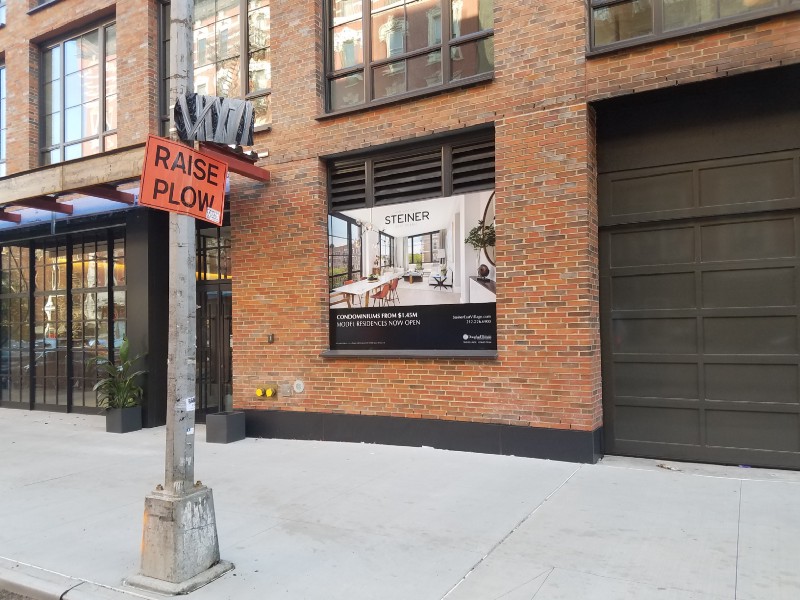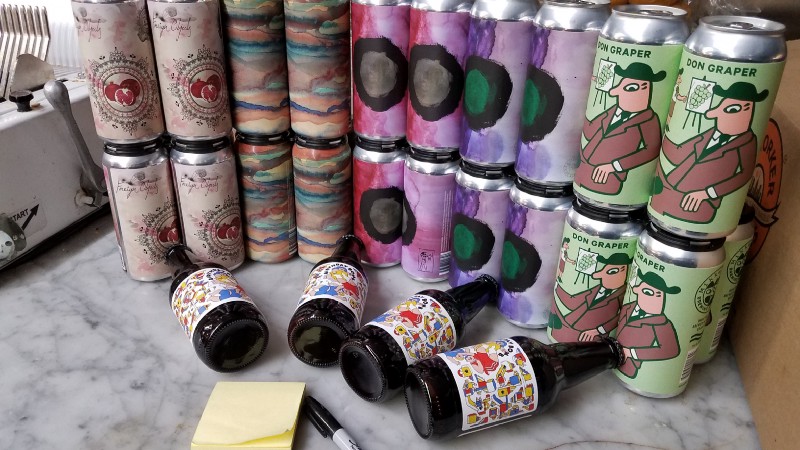
Blinded by the Light 16: The Long Walk
Hi, I’m 63 years old and unlike many of my friends, I’m not thinking about retirement, not even close. Instead, I work two jobs, and for the first time in nearly two decades, I awaken every morning free from deep, haunting existential economic fears. I think this means that after 20 years of intense struggle and depression, I’ve returned to the bottom rungs of the Middle Class. This blog is an exercise in figuring out what that means.
Almost every New Yorker has an area that isn’t homebase but familiar enough to feel like it. For me, it was the few blocks along 15th Street that extend from Union Square toward 1st Avenue. In the late ‘80s when I first moved to the East Village, those blocks were my way home from the subway. I’d walk past the luxury apartment towers that back then felt incongruous (now they feel like the norm), the private school, some doctor’s offices and into the lower-lying residential area that was my new home. Eventually, I began riding a bicycle to and fro, so those blocks receded into an almost sepia toned past.
Then four years ago, I took that walk again and it felt totally different. It was the early days of the COVID-19 lockdowns. I no longer lived in the East Village, having moved a year or so earlier to Brooklyn. And now, one of the doctor’s offices belonged to my doctor. She had closed her office to spare her staff the risk of infection, and she was doing testing. You signed up online for a time and lined up outside of her office. This initially felt admirable, until one evening in late March, when I felt feverish, a symptom of COVID.
My innards had been on red alert even before the lockdowns began. I worked at a grocery store, the very definition of a public facing job. I had already endured customers yelling at me, spitting on me and doing all the other things New Yorkers do when they can’t have every single desire fulfilled immediately and cheerfully. My roommate was astonished and consternated that I had kept the job, but I figured he’d be even more consternated if I couldn’t pay rent; writing assignments were hard to come by, and those that did were painfully late in payments.
As I walked, I passed a pub that was formerly a noted jazz club, and my mind drifted happily from the terror I felt inside to memories of extraordinary music I’d heard there, Hank Jones and Abbey Lincoln came to mind. Then it occurred to me, I was being far too timid about my fate, perhaps the cantankerous spirit of Lincoln was inspiring me). I was 59 (at the time), I had decades of experience as a journalist, I was a respected professional in the food biz with substantial knowledge in two fields, craft beer and artisan cheese. How the hell did I wind up in harm’s way like this?
I didn’t have to think too long about it. The thing was that I’m from the kind of middle class family that you were taught not to complain. We weren’t that kind of African American. My Dad went to the University of Chicago but didn’t get a job commensurate with education for 15 years. We were taught to channel our anger into energy and ambition. I might be stricken with a deadly disease; it might be time to acknowledge that this noble strategy didn’t always work. I also realized that by keeping my failures to myself, I had let them eat away at my self-esteem. It is true that I’m not the first Black man to suffer from racism, but I often felt that I hadn’t overcome those barriers as well as others. However, as I crossed Second Avenue and got in line outside the doctor’s office, I began thinking that I had it wrong, this isn’t the We Shall Overcome Olympics, and that I should talk about all the potential employers who looked me in the eye and said I wasn’t qualified because the job required hard work or that I was “so not the type.” I don’t think my peer group thinks that racism ended after Dr. King’s Washington Monument speech or Obama’s election, but it felt important to explain that while some people might have thought that a minimum wage job at a grocery store was a good fit for my Ivy League alumni ass, there were extenuating circumstances that needed to be brought to light.
The visit to the doctor was calming. She tested me (it was the first time in a long time that I’d had anything that far up my nose). Then we talked about my diet and about how her daughter was going to manage her collegiate visits (she’d been my doctor for 10 years at that point, I’d met her kids when she shopped for cheese with me. She said she didn’t think that I would test positive.
My boss at the grocery store who was on top of matters (he required masks a week before lockdowns began and distributed new ones with our weekly paychecks), put me on leave while I awaited my test results. My first afternoon off, an editor from many years ago reached out and asked if I could write an appreciation of Bill Withers for her at Huffington Post Black Voices. I happily accepted. Four hours later, the piece was live, and Huffpo tweeted links to it almost hourly. It was the polar opposite of Wall Street Journal, where my work hides from pubic view behind a paywall. My network began to swell.
Later that weekend, I got a call from my doctor. I had tested negative. That began a streak that continues today. I’ve tested negative 47 straight times. I still work in a public facing job, though it’s a far better one, I manage a small cheese shop. I still wear a mask on public transportation. Not only have I not suffered from COVID, but I’ve had only a stomach virus and a mild case of sniffles in four years.
Meanwhile, lots of people saw the Withers piece, and via my rapidly expanding Twitter network, I began receiving work from NPR, Bandcamp, TIDAL and Mic. At a time when most sixtysomething journalists were struggling to survive, my inbox was constantly overflowing.
A few weeks ago, I took that walk again. I was on my way to the doctor for a routine appointment. I no longer thought about the ‘80s. I thought a little bit about that night, and how in the aftermath of my realization, my self-esteem has improved, and it made all the success that followed feel less like a fluke and more like the proper result of a lot of really hard work.
Martin Johnson is a freelance writer whose work on music, sports and culture has appeared in the Wall Street Journal, NPR, Tidal, Bandcamp, Wine Enthusiast, Jazz Times, New York Times, Newsday, New York, Vogue, Rolling Stone, Huffington Post, The Root, Slate, The Atlantic, and numerous other publications and websites. He also blogs at Rotations, and he can be contacted at thejoyofcheese@gmail.com














